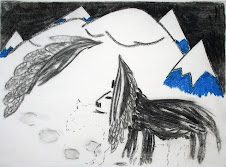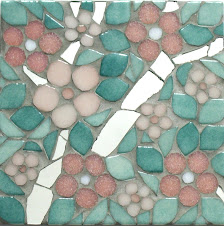•It is an enjoyable, playful and creative way of expressing and exploring personal issues.
•Art provides a more direct access to unconscious feelings and thoughts and yet it is safer than verbal communication, since the participants can decide how much they want to share with others.
•Some experiences are easier to explore non-verbally, such as intense or traumatic experiences.
•Art provides a visible record of our inner worlds, accessible for reflection.
•It enhances spontaneity, experimentation and openness.
•It provides a permanent record of our thoughts and feelings and, as such, serves as a visual diary.
•Support and facilitation is provided from an experienced art therapist, in a safe and containing environment.
•No art talent is needed, everyone can express themselves through art and, for some people (especially children), it is easier than verbal communication.
Who is it for?
•People interested in personal development and improvement of quality of their life.
•Women’s groups.
•Adolescents.
•Refugees.
•People with specific problems such as depression, anxiety, bereavement, family problems, low self-esteem.
•Children.
•Elderly.
•People with learning difficulties.
•Etc.
Aims:
•Developing creativity and awareness of personal strengths and uniqueness.
•Learning to accept one's own feelings and to express them openly.
•Exploring personal issues in order to understand them better and be able to make better choices.
•Sharing with others and finding common issues and ways of dealing with them.
•Better knowing of oneself and a better ability to communicate with others and to understand others.
•Acquiring competence for future dealing with personal challenges.
Structure:
Theme-based workshops. Each workshop lasts approximately three months and can be taken independently of others.
•Be creative – Develops flexibility, playfulness and resourcefulness through the use of various art materials and techniques – clay, large brushes and paper, hand painting, thorn newspaper etc. Works towards unblocking your thoughts and feelings and releasing stress. The themes include: ‘Exploring art materials’, ‘From chaos to order’, ‘Ugly paintings’, ‘Inner critic’ …
•Explore your self – Explores hidden sides of self and encourages acceptance and expression of oneself. It celebrates authenticity and uniqueness. Some of the themes are: ‘Metaphorical self-portraits’, ‘How others see me’, ‘Roles I play’, ‘Wishes’, ‘Fears’, ‘My good and bad sides’, ‘Advertisement for myself’, ‘Ideal self’ …
•Get in touch with your feelings – Explores where your feelings come from, how they can guide you and how you can express them safely. The themes include: ‘Scale of emotions’, ‘Emotional states as characters’, ‘Symptom dialogue’, ‘Feelings in the body’ …
•Improve relationships with others – Looks at dynamics of relationships, including the following themes: ‘My family’, ‘Heritage’, ‘Metaphorical portraits’, ‘Identification’, ‘Giving and receiving’ …
•Life line – Provides an opportunity to reflect on your life and revalue past events. Explores the paths one’s life can take in order to take a more proactive and creative stance. The themes are: ‘Dreams’, ‘Happy and unhappy memories’, ‘Things to leave behind’, ‘My life as a story’ …
Open studio drop-ins
They are unstructured and the clients work on themes they chose, following personal interests and personal rhythm, with help of the art therapist. The clients who attend theme-based workshops can use this time to further explore the themes that appeared in the structured workshops. Others can use it as a studio space, where they can paint and relax on regular basis, having a structure and a company. There is no expectation from the clients to talk about their work but, they can do so if they like.
Individual art therapy sessions
The structure and themes follow personal needs. They are for clients whose experiences are too specific, personal or intense to be shared with a group.
Multi-media workshops
The themes are explored from different angles using art, music, drama, dance and movement. It enhances holistic approach and fulfilment of personal potential. These workshops are organised with visiting therapists.
Exhibition
At the end of the workshops participants can chose to exhibit their work as means of self-actualisation, sharing with others, raising awareness and spreading interest in self-development.

My previous projects:
- Counselling and individual and group art therapy with children in care.
- Social and creative workshops for children with challenging behaviour.
- Art therapy workshop for children in a secondary school on the theme 'Colour of feelings'.
- Art therapy workshop for children in primary schools.
- Art therapy team-bulding workshop for employees of a wellness centre.
- Art therapy workshop for general public on the theme 'Perception of Inner Space'.
- Art therapy workshop at a museum of contemporary art: 'Inner images - Art as means of personal development'
- Group art therapy for professionals employed at a centre for children with special needs.
- Individual and group art therapy with children and adults with various problems (anxiety, depression, low self-esteem, family and relationship problems, bereavement, PTSD, Asperger's Syndrome) in private practice.
- Art therapy courses for students and professionals at the following institutions:
University of Ljubljana, Faculty of Education, Slovenia
Art Therapy Centre, Panevezys, Lithuania
Family Centre ‘Caritas’, Banja Luka, Bosnia and Herzegovina
Centre for Children with Special Needs ‘Juraj Bonaci’, Split, Croatia
Primary school, Krapinske Toplice, Croatia
Siauliai University, Siauliai, Lithuania
Family Counselling Centre ‘Caritas’, Zadar, Croatia
Counselling Centre for Protection of Children against Abuse ‘Tic’, Rijeka, Croatia
Home for Children in Care ‘Nazorova’, Zagreb, Croatia
Family Community Centre ‘Modus’, Zagreb, Croatia
Presentations at conferences:
- 3rd International Congress of Students of Rehabilitation, Faculty of Education and Rehabilitation Sciences, University of Zagreb, Croatia
- Symposium ‘Psychotherapy Schools and Approaches In Croatia’, Psychiatric Hospital ‘Vrapce’, Zagreb, Croatia
- International Symposium ‘Personal Development’, Association of Students of Psychology, University of Zagreb, Croatia
Publications:
Ivanovic, N. (2008) Art psychotherapy, in V. Jukic and Z. Pisk (eds) “Psychotherapy – schools and approaches in Croatia today”, Zagreb: Medicinska Naklada. (in Croatian)
Previous experience:
1995-96 Voluntary worker in art therapy, Arts Therapies Department, Springfield Hospital, London.
1996-97 Art therapy trainee at the same department.
1997-99 Art therapy trainee, Interact , Educational Centre for People with Autism and Asperger’s Syndrome, Hanwell Community Centre, London.
2000-02 Project worker running creative workshops for people with long term mental illnesses, work rehabilitation centre Workshop & Company, CNWL Mental Health NHS Trust, London.









